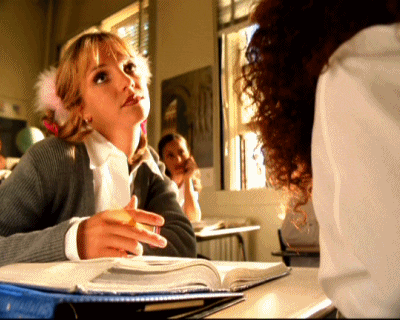
We all experience feeling unmotivated to work at some point. Sometimes changing up our routines renews our enthusiasm. If that doesn’t work, we need to probe deeper to find the cause of our lack of inspiration. The cure for boredom isn’t to numb it but to actively engage with our feelings. The next time you feel bored, tap into your imagination to visualize a life that excites you. These five ideas will give you a jump-start.
“We are not stuck in the ruts of destiny, we have the power to break free, clear our vision, and see a new life for ourselves.”
— Tony Clark
We all go through phases where we find ourselves feeling unmotivated to work and creatively uninspired. During those periods, we may feel like Bill Murray’s character in the movie “Groundhog Day,” reliving the exact same day, over and over without any power to change it.
Sometimes, simply changing our routine will breathe some life into us. If that doesn’t work, we need to probe deeper and find the underlying cause that’s precipitating our boredom.
Routines are not the bad guy. Those who claim that they can’t stand being tied down by routines simply haven’t created a schedule that makes room for their need for spontaneity and improvisation.
We need routines to give our days order and structure. Simple activities like brushing your teeth, drinking your morning coffee, or taking your dog for a walk provide a sense of familiarity and safety.
But, setting schedules won’t work if it doesn’t energize and lead to increased productivity and leaves us feeling unmotivated to work. If our daily rituals aren’t bringing out our A-game and we experience a constant sense of ennui, there’s a strong chance that we lack a compelling vision.
We need a vision that reminds us of the point of repeating certain tasks every day, whether that be a 5-mile-run or a long commute to work. When we create a vision that excites us, it becomes the North Star that guides us both during times of darkness and light.
Born restless: we’re not wired for boredom

Boredom is a feeling we remember well from childhood. Memories of yawning during an algebra class or brooding in our room during a rainy day because we couldn’t go out to play were our first experiences of it.
The restlessness that we felt as children doesn’t go away when we grow up. Many of us can’t stand in a grocery store line without scrolling our social media feeds or listening to music while we walk. With 24/7 entertainment at our fingertips, it’s easier to avoid those dreaded lulls.
According to Dr. John Eastwood, a psychology professor who runs a ‘boredom lab’ at York University in Canada, the discomfort we feel when we’re bored is part of our biological makeup.
Eastwood says, “We’re wired to want to be engaged with the world, exercise our abilities and realize our potential to stop us stagnating as a species. So we’ve evolved to find the state of being unoccupied quite aversive.”
This ingrained restlessness has served us well. It has been the driving force behind human progress and development. If it weren’t for our need to constantly be on the move, we would not have all the technology, medical advances, and conveniences we enjoy today.
According to Eastwood, there are two psychological mechanisms at play when we experience boredom:
- The desire blind: the desperation of wanting to do something but not anything specific.
- The unoccupied mind: the feeling that whatever we’re doing isn’t using our full capacity.
Those who lack vision deal more with the latter.
If boredom is part of our natural biological makeup, we need to find ways to manage it and, more importantly, understand what it’s trying to tell us about moving forward in our lives.
The value of boredom: how doing nothing can serve us

Boredom, like any other emotion, is a reflection of our inner state. When we’re bored, it’s a sign that something we’re doing isn’t working for us and that we need to address it.
Most people respond to this feeling by numbing themselves with external sources of pleasure. They binge-watch Netflix shows, play Candy Crush, or gobble up chocolate fudge cookies.
While this may occupy us and give us a temporary high, we get used to it after a while, and it loses its luster. Before we know it, we start thinking, “this is so boring,” and look for the next fix.
The cure for boredom isn’t by numbing it and assuaging it with enticing distractions. Instead, we must actively engage with our feelings. There’s value in standing still and being in the void. It’s in that space that new ideas and inspiration can come into being.
Doing nothing can stimulate our creativity and boost our ability to problem-solve and come up with innovative ideas. It also gives us the space to give shape to confusing and unformed thoughts and feelings.
Highly creative people understand the value of boredom. Aaron Sorkin, the Oscar-winning screenwriter and director of “The West Wing” and “The Social Network,” said that inspiration mostly strikes when he’s relaxing in the shower, not when he’s racking his head at his desk.
When he was the head of Microsoft, Bill Gates made time for a biannual “think week” when he would retreat into a hideaway to do nothing but reflect on the big technological questions.
However, boredom is only valuable if it is purposeful and intentional. When we engage in a passive activity and get into a state of creative flow, we access the riches of our imagination.
A hunger for more: tapping into our unfulfilled potential

Without vision, boredom becomes a burden. In this fog of uncertainty, we may feel lost and directionless, as well as worthless and cynical. It can even sap our energy and leave us feeling stressed.
Deep down, we know that we’re stuck in a rut and that the clock is ticking. This sensation is called “the burden of potential” – the pressure we feel to manifest our full potential. It’s that voice in your head that says, “you could do so much better,” and that you’re shortchanging yourself.
In some way, we know that greatness lives inside us and that if we squander it, we’ll waste our lives. No matter where we go or what we do, this feeling won’t go away until we take action. And the bigger our dreams, the deeper the pit in our stomach.
Instead of being disturbed by these stirrings within our soul and feeling unmotivated to work, we can use them to our advantage. It can be the wake-up call we need to push ourselves into motion and search for opportunities—jobs, careers, living spaces, relationships—that can make us come alive.
The pain of living a life that feels monotonous and uninspiring can be a catalyst for creating a new vision for our future. The next time you feel bored, tap into your imagination to visualize a life that excites you and gets you going. Here are some ideas to help you whenever you’re feeling unmotivated to work:
1. Identify the area in your life that feels uninspiring: We don’t necessarily experience boredom in every area of our lives. However, the boredom we experience in one can bleed into the others. Pinpointing areas like our jobs, relationships, friendships, or workout routines will bring more clarity.
Take action: Rate your satisfaction with each area of your life and create a plan and strategy to shift that aspect. Remember that this often requires time and repeated effort.
2. Prioritize your emotional needs: All of us come into this world with emotional needs and the inborn ability to meet them. A lack of inspiration is a sign of unmet emotional need(s) that prevent you from experiencing an overall sense of well-being.
Take action: Identify which of these needs, in relation to your sense of boredom, could be contributing to your disillusionment and figure out what activities can fulfill that need:
- The need for healthy challenges
- The need for purpose and meaning
- The need for achievement and recognition
- The need for play, humor, and laughter
- The need for intimacy and meaningful connections
- The need for space and time for reflection and rest
3. Follow your curiosity: We often don’t know our passions and what will increase our enthusiasm for life. In such cases, it’s best to follow your curiosity. Curiosity is that intuitive nudge that points you towards things that are worth exploring. It’s the treasure trail that could lead you down the path to your vision.
Take action: Make a list of things that pique your curiosity. Learn and explore the subject by either doing a Google search, reading a book, taking a class or online course, and being open to where it leads you.

4. Find the right environment and people: Our environment, including the people in it, can significantly impact your mood. Are you sitting in an office or workspace at home that doesn’t get your creative juices flowing? Perhaps the people you spend time with don’t inspire you, and they convince you to settle for a life of mediocrity and status quo? If yes, it’s time to make some tweaks in this area.
Take action: Create an organized and visually appealing workspace that motivates you. If you lack inspiration because of the company you keep, join organizations and online groups to meet like-minded people who support you and bring out the best in you.
5. Schedule playtime and fun: When we were kids, playtime was non-negotiable because it fueled us. Once we grow up, playtime and fun take a backseat. Boredom may indicate we’re taking life too seriously, and we’re not making time to release our stresses and have a good time.
Take action: Ask yourself what fun means to you. For some, it’s picking up a paintbrush and painting a landscape. For others, it’s going on a trip to Disney World with friends and family. Now and then, schedule “adventures” that take you out of your comfort zone – try a new restaurant or explore a new area of your town.
6. Focus on purpose and contribution: Everything we do becomes more engaging and fulfilling when we know the big “why” behind it. When our actions are driven by a sense of purpose, intention, and service, we’ll be excited to see them through and gain satisfaction from it.
Take action: For every goal you’ve set, figure out your intention and the more profound purpose. What is the result you’re looking for, and how do you want it to make you feel? What impact would you like it to have on the people around you? Why does that matter to you?
Being alive is so much more than just physical survival. It’s about finding joy, passion, and meaning in every step that we take. It’s about fully immersing ourselves in every experience by reflecting on its significance and beauty. In the end, we should feel that every moment we spent on earth added color to the mosaic of a life well-lived.
All my best on your journey,
Seline

Question for you: What do you usually do when you’re feeling unmotivated to work and creatively uninspired? Has it been effective?
Did you like this post? Sign up below, and I’ll send you more awesome posts like this every week.

Dear Seline,
This was such an awesome read. You have no idea how you stir me up in every facet of my life. Your purpose in this generation is clear as day. You continually impact me with deep and profound truths and I’m soo grateful. Please keep doing this. God bless you so much.
I have to agree with you 100%. There is so much great insight and help in these posts, it is amazing. Deep and complicated ideas and topics yet they are presented in a way that is easy to undertsand and apply on a personal level. I am so glad that I found this blog!
Hi,
That was a wonderful blog. Really well written with recommended action at each step. Loved it!!
From my personal experience, i have come to believe that boredom can also be due to low life energy levels. Our body and mind are vehicles which run on fuel and there are times when are only running on fumes.
I have seen how few mins of breathwork can really rev up one’s energy levels and take us out of boredom in matter of mins. What do you think about it?